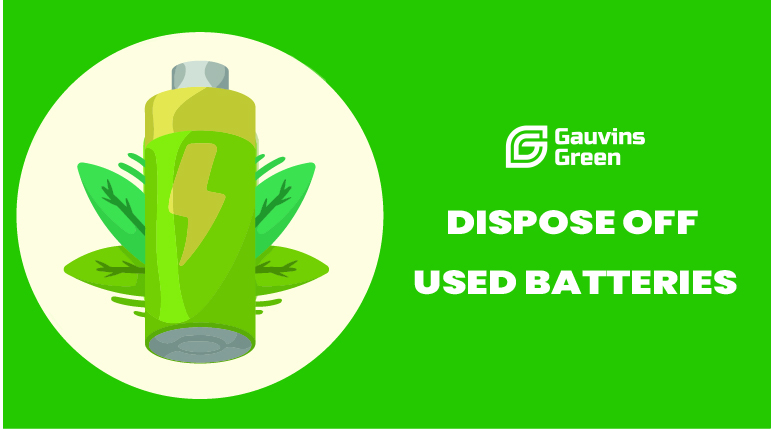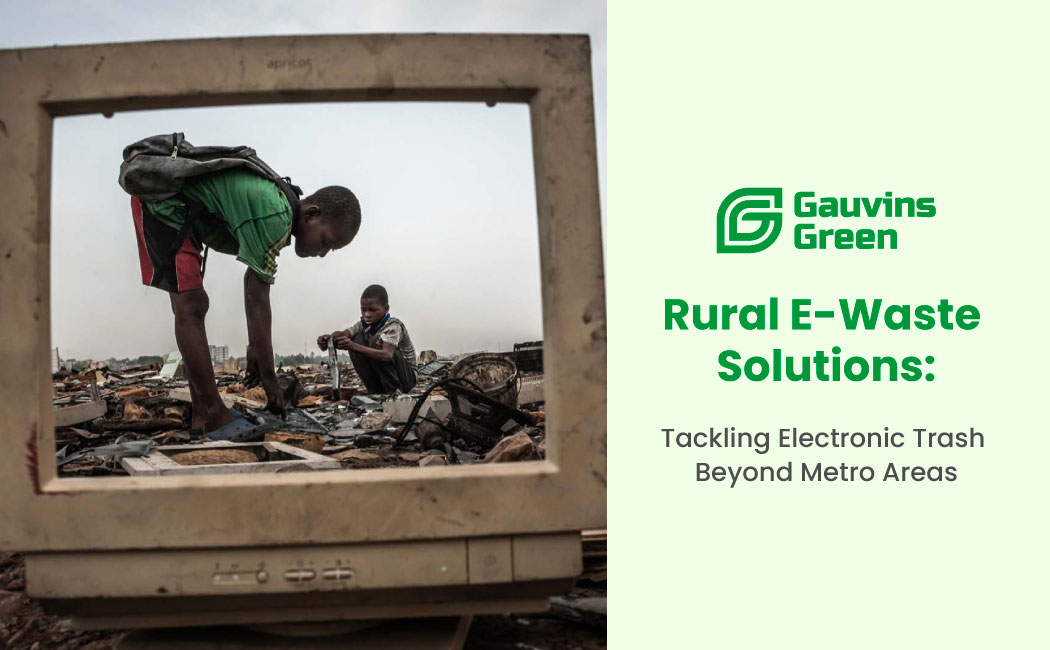|
Getting your Trinity Audio player ready...
|
Table of Contents
ToggleIntroduction
As technology continues to evolve at a rapid pace, the generation of electronic waste, particularly used batteries, is on the rise. These batteries contain valuable and potentially hazardous materials that should not end up in landfills. Proper disposal and recycling not only prevent environmental contamination but also allow the recovery of useful materials. In this post, we at Gauvin’s Green explore three effective ways to dispose of used batteries responsibly.
Recycling Programs:
Participating in recycling programs is one of the best ways to dispose of used batteries. Specialized recycling facilities use unique techniques to safely extract valuable materials like nickel, lead, cadmium, and lithium from the batteries. Different types of batteries require specific methods of recycling. As part of our commitment to e-waste recycling and sustainability, Gauvin’s Green offers recycling programs for used batteries. By participating in such programs, you’re contributing to a cleaner environment and a more sustainable economy.
Drop-off Points and Collection Centers:
Numerous retail stores, municipal facilities, and businesses serve as drop-off points for used batteries. They work as intermediaries, collecting batteries from consumers and ensuring their transport to the right recycling facilities. These centers play a critical role in the process of electronic waste management in India. By using these collection points, consumers can ensure that their used batteries are handled and disposed of correctly.
Producer Take-Back Programs:
Many battery manufacturers and retailers offer take-back programs as part of their Extended Producer Responsibility (EPR). This concept suggests that manufacturers are responsible for the treatment or disposal of post-consumer products. By offering take-back programs, these producers help divert used batteries from landfills, ensuring they reach appropriate recycling facilities.
The Future of Used Battery Disposal:
While the above methods are effective, continuous efforts are needed to further enhance the battery disposal process. Innovation in disposal methods, public awareness campaigns, and stricter e-waste regulations can significantly improve the scenario.
One such promising innovation is eco-design, where batteries are designed to be easier to recycle. This can significantly enhance the efficiency of the recycling process and improve the overall lifecycle of the batteries. Additionally, spreading awareness about the importance of correct battery disposal is key. The more people know about it, the more likely they are to participate in proper disposal and recycling.
Conclusion:
Proper disposal of used batteries is a crucial part of our journey towards a sustainable future. It not only reduces environmental harm but also contributes to the conservation of natural resources by enabling the reuse of valuable materials found in batteries.
At Gauvin’s Green, we continue to support responsible e-waste management by offering comprehensive solutions for your used battery disposal needs. By taking small steps such as recycling your used batteries, you can make a significant impact on our planet’s health. Let’s work together to create a future where electronic waste is sustainably managed, and where every used battery finds a new purpose.




